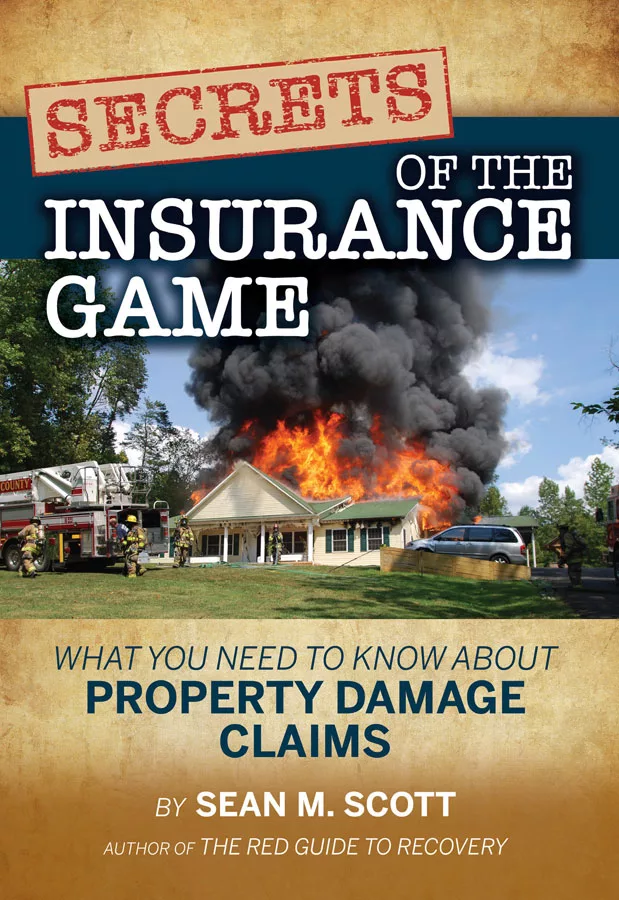The Intentional Restorer
Communication with the Carriers is Key to Successful Claim Experience
Insurance coverage has already been a consistent topic associated with the direct and indirect impacts of coronavirus. Our guest, Raymond Tittmann, is a Notre Dame alumni and has been practicing law for over 25 years with the last 20 specializing in insurance. He advises clients on complex insurance coverage issues across the country and was recently recognized by Law360 as an MVP for the year in the field of insurance.
Questions about the extent of business interruption coverages
In a recent White House briefing, President Trump spoke rather candidly about his expectations regarding insurance companies assisting their clients with business interruption:
“You have people that have never asked for business-interruption insurance, and they’ve been paying a lot of money for a lot of years for the privilege of having it. And then when they finally need it, the insurance company says, ‘We’re not going to give it.’ We can’t let that happen.”
While this high level commentary was not out at the time of our discussion with Raymond, the first case of an insured suing their insurance carrier over business interruption as it relates to a civil authority had occurred, and much earlier than most anticipated. This wasn’t ever an issue of whether a company would sue their insurance company relevant to COVID-19, but when. We discussed this case briefly in Episode 1 of The DYOJO Podcast with David Princeton.
Thoughts on President Trump’s comments about Business Interruption Coverage
I reached out to Raymond via email to get his thoughts on President Trump’s comments and Raymond responded,
“For business interruption policies without a virus exclusion, the public discussion generally misunderstands the terms. BI coverage is a rider to property insurance, and covers business interruption caused by property damage (e.g., while flood waters are cleaned up). It does not stand alone to cover any business interruption. In other words, there needs to be predicate property damage. Several Senators responded to the comments of President Trump and addressed the issue. For business interruption policies with a virus exclusion, there should not be a serious debate.”
Assessing damages and providing value in a crisis
Mr. Tittmann is no stranger to the labyrinth of the insurance world as he is currently advising several carriers on complex opioid coverage issues. He notes that opioid litigation is projected to put at issue the largest civil litigation dollars in U.S. history, exceeding the $246 billion settlement with cigarette manufacturers.
I discovered some commentary by Raymond via a LinkedIn discussion over bacterials and communicable disease exclusions. He notes in our discussion that use of words is important as are both the inclusions as well as exclusions within the nuances of a policy. One of the biggest questions is whether coronavirus causes property damage. Even though we believe it isn’t likely transmitted by property to person, at the same time it can’t be excluded. In the aforementioned Louisiana case, Property Casualty 360 notes:
The complaint maintains that ‘the global pandemic is exacerbated by the fact that the deadly virus physically infects and stays on the surface of objects or materials, ‘fomites,’ for up to twenty-eight days, particularly in humid areas below eighty-four degrees.” Further, the complaint states that it is “clear that contamination of the insured premises by the coronavirus would be a direct physical loss needing remediation to clean the surfaces of the establishment.”
Recommendations for property restoration contractors
As it relates to property restoration contractors providing services for COVID-19 / SARS-CoV-2 clean up, Raymond makes some solid observations:
- Communication: Response without any prior communication to the insurance company creates issues in the carrier, client and contractor paradigm. Whether intentionally or not, this can create problems with confirming coverage which will impact the process for all parties involved.
- Documentation: All business owners and cleaning contractors should do their due diligence to create a “fair record” that there was contamination present in the space so that the insurance companies can determine exposure and support a legitimate response to the issues affecting the client.
- Provide Value: Whenever services are offered, the contractor should be able to document that value was provided to the client and be able to relay the story of the loss to the insurance company who is adjusting the claim.
Thank you for reading, watching and listening to this content. The Intentional Restorer’s segment Three Questions with a Pro, brought to you in collaboration with Restoration and Remediation (R&R) Magazine and The DYOJO. Our goal is to connect, collaborate and conquer with our friends and peers in the property restoration community. You can also listen to this interview, with additional exclusive content via The DYOJO Podcast which is available on the Anchor, Spotify, Apple and Google podcasting platforms.
Looking for a reprint of this article?
From high-res PDFs to custom plaques, order your copy today!







